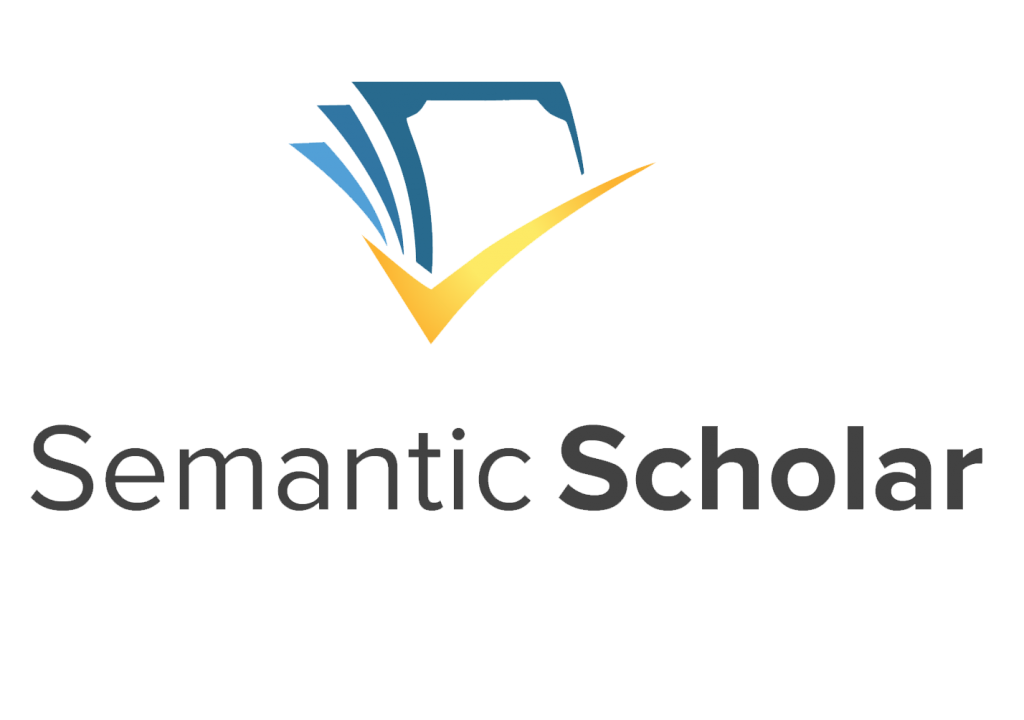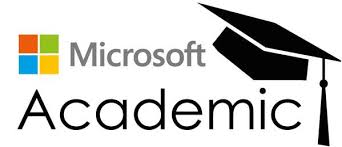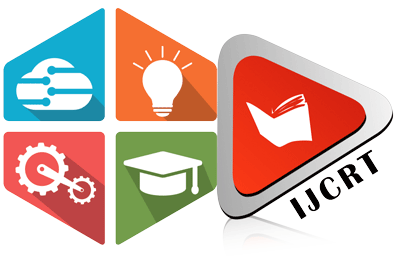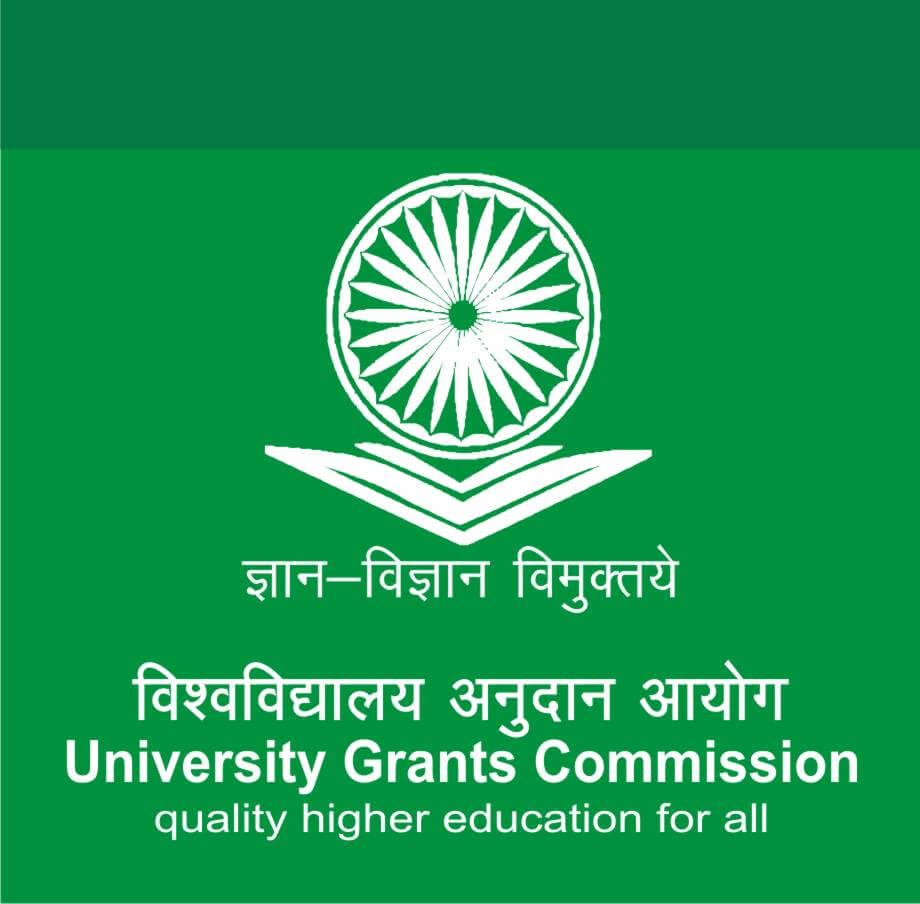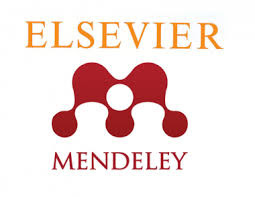INTERNATIONAL JOURNAL OF CREATIVE RESEARCH THOUGHTS - IJCRT (IJCRT.ORG)
International Peer Reviewed & Refereed Journals, Open Access Journal
IJCRT Peer-Reviewed (Refereed) Journal as Per New UGC Rules.
ISSN Approved Journal No: 2320-2882 | Impact factor: 7.97 | ESTD Year: 2013
Call For Paper - Volume 13 | Issue 10 | Month- October 2025
Scholarly open access journals, Peer-reviewed, and Refereed Journals, Impact factor 7.97 (Calculate by google scholar and Semantic Scholar | AI-Powered Research Tool) , Multidisciplinary, Monthly, Indexing in all major database & Metadata, Citation Generator, Digital Object Identifier(CrossRef DOI)
Contact Us Click Here
WhatsApp Contact Click Here
Volume 9 | Issue 6
| IJCRT Journal front page | IJCRT Journal Back Page |
Paper Title: A STUDY ON INVESTORS ATTITUDE TOWARDS INDIA POST PAYMENTBANK SAVINGS SCHEMES IN NAMAKKAL DISTRICT, TAMIL NADU
Publisher Journal Name: IJCRT
Your Paper Publication Details:
Published Paper ID: - IJCRT2106259
Register Paper ID - 207793
Title: A STUDY ON INVESTORS ATTITUDE TOWARDS INDIA POST PAYMENTBANK SAVINGS SCHEMES IN NAMAKKAL DISTRICT, TAMIL NADU
Author Name(s): N.SENTIL KUMAR, L.Balasubramanian
Publisher Journal name: IJCRT
Volume: 9
Issue: 6
Pages: c112-c123
Year: June 2021
Downloads: 1318
Abstract
Licence: creative commons attribution 4.0
License
Paper Title: IMMUNITY BOOSTER DURING COVID-19
Publisher Journal Name: IJCRT
Your Paper Publication Details:
Published Paper ID: - IJCRT2106258
Register Paper ID - 208185
Title: IMMUNITY BOOSTER DURING COVID-19
Author Name(s): Chander singh, Komal Rao, Nikita yadav, Yogesh Vasisht, Itisha Budhiraja
Publisher Journal name: IJCRT
Volume: 9
Issue: 6
Pages: c98-c111
Year: June 2021
Downloads: 1347
Abstract
Licence: creative commons attribution 4.0
License
Keywords
Immunity Booster, factors that may impair the immune system, Treatments .
License
Paper Title: PENETRATING FOREING BODY OF PAROTID GLAND AND EXTERNAL AUDITORY CANAL: A CASE REPORT
Publisher Journal Name: IJCRT
Your Paper Publication Details:
Published Paper ID: - IJCRT2106257
Register Paper ID - 208285
Title: PENETRATING FOREING BODY OF PAROTID GLAND AND EXTERNAL AUDITORY CANAL: A CASE REPORT
Author Name(s): H.Rahim, N.Belhaj, H.AiT TALEB, R.Bencheikh, M.A.Benbouzid, L.Essakalli
Publisher Journal name: IJCRT
Volume: 9
Issue: 6
Pages: c95-c97
Year: June 2021
Downloads: 1265
Abstract
A foreign body in the parotid gland wheather from the oral cavity or through the skin is extremely uncommon. we described a case of a young man who got accidentally injerd by a metallic stuck piercing the skin of the external auditory canal throught the parotide gland. Emergency surgical removal was performed, the diagnosis of the foreign body was quite easy. In contrast, determination of the location in the gland had to be evaluated. Although these materials are assumed to be harmless to human tissues, the complete and immediate removal is to prevent salivary fistule resulting from inflammation.
Licence: creative commons attribution 4.0
License
Keywords
Penetrating foreing body of parotid gland and external auditory canal: a case report
License
Paper Title: EXPERIENCES OF LEARNING IN ONLINE MODE DURING COVID-19 LOCKDOWN AND NEEDS FOR COMPUTING FOR SUSTAINABLE DEVELOPMENT
Publisher Journal Name: IJCRT
Your Paper Publication Details:
Published Paper ID: - IJCRT2106256
Register Paper ID - 208592
Title: EXPERIENCES OF LEARNING IN ONLINE MODE DURING COVID-19 LOCKDOWN AND NEEDS FOR COMPUTING FOR SUSTAINABLE DEVELOPMENT
Author Name(s): Suman Prasad Maurya, Purushottam Kumar Maurya
Publisher Journal name: IJCRT
Volume: 9
Issue: 6
Pages: c88-c94
Year: June 2021
Downloads: 1253
Abstract
Although online learning is not new to the country like India, its potentials were well explored during COVID19 pandemic lockdown. Most institutions and associated teachers made a deliberate effort to learn using the online mode and teach in the students associated with them. A survey form was floated across the country to know the experiences of the learners from the place of lockdown to gain insight into the preparedness of the country as digital India. Education as we all believe is the life line that can sustain development. Computer Science can play a pivotal role in enhancing the learning experience to gain knowledge and skill to be more employable and contributing in National development. The study of the sixty response received online through Google forms revealed the gaps and difficulties experienced by the learner of all age groups majority of them being in the age group of 20-25 years. The pilot study found that 80% could take online learning while rest 20% missed classes, which is of great concern. majority of the learners were from rural areas followed by semi-urban and urban areas. The learners compared their experiences of online and offline learning with respect to availability of facilities available at their home, the internet speed, application used and desired, Their preferred way of online learning. The paper further discusses on the efforts that might help in sustaining development.
Licence: creative commons attribution 4.0
License
Keywords
Computing needs, online learning, offline learning,
License
Paper Title: IOT IN ADVANCED EDUCATION
Publisher Journal Name: IJCRT
Your Paper Publication Details:
Published Paper ID: - IJCRT2106255
Register Paper ID - 208600
Title: IOT IN ADVANCED EDUCATION
Author Name(s): Mrs.Trupti Anil Kulkarni, Mrs. Jyoti Bachhav, Mrs. Vandana Nemane, Mrs. Madhuri Darekar, Ms. Priti Jadhav
Publisher Journal name: IJCRT
Volume: 9
Issue: 6
Pages: c81-c87
Year: June 2021
Downloads: 1207
Abstract
Abstract - Technology will influence the learning experience in many ways in the coming years. In t he context of Information and Communication Technologies and the development of society, Internet of Things (IoT) sanction its important position. With the help of IoT, institutions can improve their learning outcomes by providing more comfortable learningexperiences, improved operational efficiency, and by gaining real-time, actionable insight intostudent performance. The purpose of this study is to find out the potential of IoT in advanced education and how to maximize its benefits and reducing the risks involved with it. For releasing the full potential of IoT systems and technologies, moreefforts are again necessary. Therefore, this paper presents a study about the influence of IoT on advanced education especially universities. IoT stands to change intensely the way universities work, and develop student learning inmany disciplines. It has massive potential for universities or any other education all institutions; if well prepared to ensure widespread and success full implementation by leadership, staff, and students. IoT needs development where universities can lead. Researchers, academics and students are in a unique place to lead the development of IoT systems, applications, devicesand services. Moreover, this paper provides an evidences aboutthe future of IoT in the advanced education during the next few years, which have offered by a number of research organizations and enterprises. On the other hand, in advanced education, IoT also brings fabulous challenges. Hence, this paper presents the perception on the challenges of IoT in advanced education.
Licence: creative commons attribution 4.0
License
Keywords
Internet of Things, education, smart gadgets, e-books.
License
Paper Title: NETWORK LEVEL PERFORMANCE ENHANCEMENT IN VANET USING WIRELESS NANO SENSOR
Publisher Journal Name: IJCRT
Your Paper Publication Details:
Published Paper ID: - IJCRT2106254
Register Paper ID - 208652
Title: NETWORK LEVEL PERFORMANCE ENHANCEMENT IN VANET USING WIRELESS NANO SENSOR
Author Name(s): Ganesh Auchar, Swapnil Uppin, Prakash Wagh
Publisher Journal name: IJCRT
Volume: 9
Issue: 6
Pages: c68-c80
Year: June 2021
Downloads: 1283
Abstract
Urban areas around the world are populating their streets with Vehicular Ad Hoc Network (VANET) in order to feed incipient smart city IT systems with metropolitan data. In the future smart cities, VANET technology will have a massive presence in the streets, and the operation of municipal services will be based to a great extent on data gathered with this technology. However, from an information security point of view, VANET can have failures and can be the target of many different types of attacks. The ability to route the packet to the next node is the foremost requirements of such vehicular networks. One of the main issues to be addressed in VANET is congestion. When a sudden burst of traffic is detected, the nodes need to forward it towards the destination. The node that is forwarding may also have some packets to be delivered from it. The outgoing packets and transitory packets lead to buffer overflows at a node which in turn lead to packet drops and finally degrades the overall network performance. Congestion control schemes are essential in such situations to increase network performance and ensure a fair use of the resources. This work proposes a congestion control scheme distributed across the transport, network and MAC layers that can detect and avoid congestion in the network. It provides priority based traffic scheduling with a dual queue scheduler which favors transitory packets. When congestion is detected based on the buffer occupancy, source sending rate is updated by the sink periodically with the help of dual queues and route the packets through less congested paths.
Licence: creative commons attribution 4.0
License
Keywords
Performance Enhancement in VANET using wireless Nano sensor, system using network simulation in vehicular ad hoc network.
License
Paper Title: COMMUNICATION AND ITS EFFECTIVE ROLE IN ORGANIZATION
Publisher Journal Name: IJCRT
Your Paper Publication Details:
Published Paper ID: - IJCRT2106253
Register Paper ID - 208571
Title: COMMUNICATION AND ITS EFFECTIVE ROLE IN ORGANIZATION
Author Name(s): Ankit Mishra
Publisher Journal name: IJCRT
Volume: 9
Issue: 6
Pages: c64-c67
Year: June 2021
Downloads: 1246
Abstract
Everyone is in communication with the others in the social setting, which is a trait of socially defined persons. Individuals should trade and discuss views, news, and other information, in other words, they should communicate. Anything that inhibits us from receiving and understanding the messages others use to communicate their information, ideas, and thoughts is referred to as a communication barrier. Attitudinal Hurdles, Behavioural Barriers, Cultural Barriers, Language Barriers, and Environment Barriers are the five categories of barriers to effective communication. People with diverse attitudes, values, and prejudices are a common cause of workplace communication breakdown. In this regard, it is more important than ever in organizations where formal and informal communication coexist.
Licence: creative commons attribution 4.0
License
Keywords
Communication, Business Communication, Language, Barrier, Attitude, Behaviour, Culture, Language, Environment
License
Paper Title: HERBAL DRUGS ENHANCING THE TREATMENT OF DIABETES MELLITUS
Publisher Journal Name: IJCRT
Your Paper Publication Details:
Published Paper ID: - IJCRT2106252
Register Paper ID - 208458
Title: HERBAL DRUGS ENHANCING THE TREATMENT OF DIABETES MELLITUS
Author Name(s): Madhu Sahu, Prerana Sahu, Neha dubey
Publisher Journal name: IJCRT
Volume: 9
Issue: 6
Pages: c47-c63
Year: June 2021
Downloads: 1285
Abstract
Diabetes mellitus is becoming a common metabolic disorder which has serious threat to public health in the world. There are chemicals and biochemical agent that helps in controlling diabetes but there is no permanent remedy available which helps to get recovered completely from this disorder. By conducting large number of research work, numerous traditional medicines have been found for diabetes. Substances and extracts isolated from different natural resources especially plants have always been a rich arsenal for controlling and treating diabetes problem and complication arising due to it. So this review helps the reader to understand the importance of various types of herbal and polyherbal formulations present traditionally which can be used to treat diabetes mellitus.
Licence: creative commons attribution 4.0
License
Keywords
Diabetes mellitus, Herbal drugs
License
Paper Title: OPERATING SYSTEM
Publisher Journal Name: IJCRT
Your Paper Publication Details:
Published Paper ID: - IJCRT2106251
Register Paper ID - 207613
Title: OPERATING SYSTEM
Author Name(s): Anjalee Sahu, Mr. Shrikant Singh, Rahul Chawda
Publisher Journal name: IJCRT
Volume: 9
Issue: 6
Pages: c41-c46
Year: June 2021
Downloads: 1869
Abstract
Licence: creative commons attribution 4.0
License
Keywords
1 Real-time operating system (RTOS) 2 Single-user, single task 3 Single-user, multi-tasking 4 Multi-user
License
Paper Title: ``Study of Characteristics of Sisal and Coir Blended Nonwoven Fabrics``
Publisher Journal Name: IJCRT
Your Paper Publication Details:
Published Paper ID: - IJCRT2106250
Register Paper ID - 208575
Title: ``STUDY OF CHARACTERISTICS OF SISAL AND COIR BLENDED NONWOVEN FABRICS``
Author Name(s): Dr.INDU GK
Publisher Journal name: IJCRT
Volume: 9
Issue: 6
Pages: c30-c40
Year: June 2021
Downloads: 1295
Abstract
This paper reports an experimental study on the fabrication and parametric evaluation of non-woven textile material prepared from uni-fiber natural material. The test parameters on which these fabrics are evaluated are Thickness, Grams per Square meter (GSM), Air permeability, Mechanical properties, Pore size distribution, and Moisture Absorbency. These parameters have been studied and discussed for three types of non-woven fabrics, namely Sisal (100%), a blend of Sisal (70%) and Coir (30%), and a blend of Coir (70%) and Sisal (30%). Sisal (70%) and Coir (30%), blend has greater Air permeability and Bursting strength were specific treatment should be given for the material for future application such as noise control, sound proof lamination board, air conditioning, RCC curing material. The use of inexpensive and abundantly available raw materials to prepare a value-added product has been the aim of this study. The physical and chemical properties of fiber study and tangle of fiber by using web method process sisal 30%and coir 70% intrinsic lower air permeability and good in busting strength. Developed nonwoven fabrics using needle punching method can be converted as house hold wipes, geo textiles, mattress, and in agriculture. Specific treatment should be given for the material for future application such as noise control, false roofing material, printing, embossing wall hangings.
Licence: creative commons attribution 4.0
License
Keywords
Keywords- Blending, Natural fiber, Needle punch technique, Nonwoven fabric properties and Testing
License
Paper Title: COMPARITIVE STUDY OF ANTIMICROBIAL ACTIVITY OF METAL COMPLEXES OF VARIOUS SCHIFF BASES DERIVED FROM 2-AMINO METHYL BENZIMIDAZOLE
Publisher Journal Name: IJCRT
Your Paper Publication Details:
Published Paper ID: - IJCRT2106249
Register Paper ID - 208572
Title: COMPARITIVE STUDY OF ANTIMICROBIAL ACTIVITY OF METAL COMPLEXES OF VARIOUS SCHIFF BASES DERIVED FROM 2-AMINO METHYL BENZIMIDAZOLE
Author Name(s): Pragathi Jogi
Publisher Journal name: IJCRT
Volume: 9
Issue: 6
Pages: c25-c29
Year: June 2021
Downloads: 1243
Abstract
ABSTRACT: Schiff bases(BNTM,BCTM,BMOM) derived from 2-aminomethyl benzimidazole.2HCl and The metal ions proposed for the work include Mn(II), VO(II), Co(II), Ni(II), Cu(II) and Zn(IThe new Schiff base and the complexes were tested for in vitro antibacterial activity against Bacillus subtilis, Staphylococcus aureus, Escherichia coli, Pseudomonas aeruginosa using diffusion method. The Schiff base and the complexes exhibited varying degrees of inhibitory effect on the growth of the tested bacterial species. The values reveal that the Schiff base became more effective when coordinated to the metal ions. Among all the metal complexes, Co(II)-BNTM exhibited higher inhibitory effect on the growth of the tested bacterial species.
Licence: creative commons attribution 4.0
License
Keywords
Schiff bases, Inhibitory effect, diffusion method
License
Paper Title: SEMI AUTOMATED SOLAR BASED GRASS CUTTER
Publisher Journal Name: IJCRT
Your Paper Publication Details:
Published Paper ID: - IJCRT2106248
Register Paper ID - 208334
Title: SEMI AUTOMATED SOLAR BASED GRASS CUTTER
Author Name(s): GOPAL S, SANTHOSH K, ROKESH M, SATHISH KUMAR S, VIGNESH M
Publisher Journal name: IJCRT
Volume: 9
Issue: 6
Pages: c18-c24
Year: June 2021
Downloads: 1357
Abstract
Licence: creative commons attribution 4.0
License
Keywords
cutting machine, solar energy, sliding blades
License
Paper Title: EXPERIMENTAL INVESTIGATION ON UTILIZATION OF WASTE FOUNDRY SAND AND FLYASH IN BRICKS
Publisher Journal Name: IJCRT
Your Paper Publication Details:
Published Paper ID: - IJCRT2106247
Register Paper ID - 208569
Title: EXPERIMENTAL INVESTIGATION ON UTILIZATION OF WASTE FOUNDRY SAND AND FLYASH IN BRICKS
Author Name(s): Pravin Wale, Vijayan Nikam, Bharat Patil, Sakshi Waghmare, Kajal Watekar
Publisher Journal name: IJCRT
Volume: 9
Issue: 6
Pages: c13-c17
Year: June 2021
Downloads: 1274
Abstract
In rural and urban parts of India, burnt clay bricks are extensively used for housing purpose. Clay is obtained from agricultural land and bricks are manufactured from this clay. Overuse of clay cause loss of fertile soil and divert agricultural land for the purpose of brick manufacturing. It may be possible to produce clay bricks by replacing some percentage of conventional soil by Waste Foundry Sand and some percentage by Flyash.
Licence: creative commons attribution 4.0
License
Keywords
Waste Foundry Sand, Flyash, Burnt clay bricks.
License
Paper Title: A COMPACT FREQUENCY RECONFIGURABLE ANTENNA WITH ENHANCED BANDWIDTH FOR WLAN APPLICATIONS
Publisher Journal Name: IJCRT
Your Paper Publication Details:
Published Paper ID: - IJCRT2106246
Register Paper ID - 208594
Title: A COMPACT FREQUENCY RECONFIGURABLE ANTENNA WITH ENHANCED BANDWIDTH FOR WLAN APPLICATIONS
Author Name(s): Pendli Pradeep, Akkenapally Hemanth, Gundu Kavya Sri, Sama Vinisha
Publisher Journal name: IJCRT
Volume: 9
Issue: 6
Pages: c6-c12
Year: June 2021
Downloads: 1271
Abstract
Abstract -- In this paper, a compact frequency reconfigurable antenna is presented for WLAN applications. The proposed antenna consists of a partial ground, tuning fork shaped patch and two PIN diodes are integrated at the two corners of forks to obtain frequency reconfigurability. A 50-ohm microstrip line is used to feed the antenna. FR-4 epoxy substrate is used in design with dielectric constant 4.4 and loss tangent 0.02. The total size of antenna is 21mm x 13mm. The proposed antenna design and simulation carried out using HFSS Simulator. The proposed antenna is having two PIN diodes to provide multiple frequency bands in the range of 4-8 GHz. Using two PIN diodes three possible conditions are achieved. The proposed reconfigurable antenna can switch at multiple operating frequencies i.e., 5.14 GHz 8.60 GHz (both diodes ON), 4.57 GHz, 5.74 GHz (one diode ON and other diode OFF), and 5.86 GHz (both diodes OFF) based on conditions provided by PIN diodes. The antenna shows good characteristics at every operating frequency. The proposed antenna can work effectively for C-band applications.
Licence: creative commons attribution 4.0
License
Keywords
WLAN, PIN Diodes, Tuning fork, Partial Ground Structure, Frequency Reconfigurable.
License
Paper Title: INTEGRATED DRIVER ALERT SYSTEM USING DEEP LEARNING AND INTERNET OF THINGS
Publisher Journal Name: IJCRT
Your Paper Publication Details:
Published Paper ID: - IJCRT2106245
Register Paper ID - 206840
Title: INTEGRATED DRIVER ALERT SYSTEM USING DEEP LEARNING AND INTERNET OF THINGS
Author Name(s): Rounak Bhadra, Sourabh kumar, Ashutosh verma, Mukul Suthar, Krishnaveer Singh
Publisher Journal name: IJCRT
Volume: 9
Issue: 6
Pages: c1-c5
Year: June 2021
Downloads: 1317
Abstract
Licence: creative commons attribution 4.0
License
Keywords
Machine Learning, TensorFlow, Image Analysis, Deep Learning, Open CV.
License
Paper Title: REVIEW ON `MAGIC MIRROR USING RASPBERRY PI`
Publisher Journal Name: IJCRT
Your Paper Publication Details:
Published Paper ID: - IJCRT2106244
Register Paper ID - 206314
Title: REVIEW ON `MAGIC MIRROR USING RASPBERRY PI`
Author Name(s): Mr. Pranay Kolhe, Mr. Sajjad Husen, Mr. Saurabh Wankhede, Mr. Ajay Mandhere, Mr. Abhijeet Shende, Prof. Deepak Deshpande
Publisher Journal name: IJCRT
Volume: 9
Issue: 6
Pages: b896-b906
Year: June 2021
Downloads: 1386
Abstract
This paper presents the design and the development of an interactive multimedia futuristic Smart Mirror for commercial uses in various industries. The project which would collect real world machine data and the data would be transmitted from the machine and would be managed by the Raspberry Pi. The Smart Mirror implemented as a personalized digital device equipped with peripherals such as Raspberry PI, microphone, buzzer , LED Monitor covered with a sheet of reflective one way mirror provides one of the most basic common amenities such as weather of the city, latest updates of news and headlines and local time corresponding to the location. A screen is placed behind a two-way mirror 1. By using a black and white graphical user interface (GUI) only the white colors will penetrate the mirror, resulting in an effect that makes it appear as if the mirror itself is a screen. Our lifestyle has evolved in such a way that optimizing time is the most important thing. Based on the user studies and prototype implementation, we present the development of an different application that integrate interactive services of information, offered through a user interface on the surface of a mirror. Our work is based on the idea that we all looks at the mirror when we go out, so why wouldn't the mirror become smart. The framework will offer basic services, like the presentation of personalized weather data, time, date and will incorporate some additional functionality, like reminder service by mobile synchronization and through social media. Our framework is based on detecting presence of human using Passive Infrared sensors and Wi-Fi connectivity. Once a person comes in front of the mirror, it displays the information that is being fed from the phone. This data or information includes calendar, time, weather, news feed, notifications and so on. Our framework also discusses about the face recognition and its application in control mechanism in home appliances and opening and closing of shelf. Our framework also introduces speech activated music player, and plays the music when a person gives a command.
Licence: creative commons attribution 4.0
License
Keywords
Raspberry Pi, Gas Sensor, IOT
License
Paper Title: BLOCKCHAIN AND CRYPTOCURRENCY: SIGNIFICANCE OF DISTRIBUTED COMPUTING
Publisher Journal Name: IJCRT
Your Paper Publication Details:
Published Paper ID: - IJCRT2106243
Register Paper ID - 208554
Title: BLOCKCHAIN AND CRYPTOCURRENCY: SIGNIFICANCE OF DISTRIBUTED COMPUTING
Author Name(s): Dr Shamsudeen E
Publisher Journal name: IJCRT
Volume: 9
Issue: 6
Pages: b892-b895
Year: June 2021
Downloads: 1260
Abstract
Licence: creative commons attribution 4.0
License
Keywords
distributed computing blockchain bitcoin distributed ledger
License
Paper Title: 3D BIOPRINTING IS EMERGING TECHNOLOGY IN BIOMEDICAL INDUSTRY: METHODS, APPLICATIONS, AND CHALLENGES.
Publisher Journal Name: IJCRT
Your Paper Publication Details:
Published Paper ID: - IJCRT2106242
Register Paper ID - 208452
Title: 3D BIOPRINTING IS EMERGING TECHNOLOGY IN BIOMEDICAL INDUSTRY: METHODS, APPLICATIONS, AND CHALLENGES.
Author Name(s): Prerana Rajkumar Teli, Akshada Deshmukh
Publisher Journal name: IJCRT
Volume: 9
Issue: 6
Pages: b881-b891
Year: June 2021
Downloads: 1241
Abstract
Three-dimensional (3D) printing has advanced quickly, with significant medical uses. Development of biomaterials, cells, and supporting components enabling the production of functional living tissues was one of the most significant advancements leading to 3D bioprinting. Several different methods and techniques of 3D bioprinting are briefly described in this review article, and applications of 3D printing in tissue engineering and regenerative medicine, tissue transplantation, cancer research, artificial development of skin, bone and cartilage, blood vessels, liver tissue and also include the future of bioprinting in pharmaceutical applications that is Disease modelling and drug optimization, Drug toxicity screening, Precision medicine this article also include limitations and future challenges in 3D bioprinting. Further breakthroughs in the manufacture of patient-specific vascular tissue constructions will be aided by advances in additive manufacturing techniques, medical imaging modalities, biomaterials, and cellular engineering. Tissue engineering and regenerative medicine are likely to undergo significant transformations as a result of future transdisciplinary research and breakthroughs.
Licence: creative commons attribution 4.0
License
Keywords
Three-dimensional (3D) printing, Tissue engineering, Regenerative medicine, Tissue transplantation, Precision medicine, Additive manufacturing.
License
Paper Title: VERBAL VULGARITY AND LOCAL BELIEF SYSTEM IN THE PATTINI-KANNAKI CULT: CONTEXTUALISING THE LITERARY-LINGUISTIC TRADITION OF KODUNGALLUR BHARANI
Publisher Journal Name: IJCRT
Your Paper Publication Details:
Published Paper ID: - IJCRT2106241
Register Paper ID - 208556
Title: VERBAL VULGARITY AND LOCAL BELIEF SYSTEM IN THE PATTINI-KANNAKI CULT: CONTEXTUALISING THE LITERARY-LINGUISTIC TRADITION OF KODUNGALLUR BHARANI
Author Name(s): Ms. Lakshmi V U, Dr. Rajeesh CS
Publisher Journal name: IJCRT
Volume: 9
Issue: 6
Pages: b875-b880
Year: June 2021
Downloads: 1267
Abstract
Licence: creative commons attribution 4.0
License
Keywords
Bharani, Velichapadu, Kavu, Kannaki, Kovalan
License
Paper Title: EMOTION RECOGNITION BASED ON SPEECH USING MACHINE LEARNING
Publisher Journal Name: IJCRT
Your Paper Publication Details:
Published Paper ID: - IJCRT2106240
Register Paper ID - 208558
Title: EMOTION RECOGNITION BASED ON SPEECH USING MACHINE LEARNING
Author Name(s): Nayana Sonawane, Ashwini Uttam Gund, Pooja Navnath Gawate, Akshata Dipak Salunke, Sumeet Popat Kakade
Publisher Journal name: IJCRT
Volume: 9
Issue: 6
Pages: b868-b874
Year: June 2021
Downloads: 1237
Abstract
In human communication, feelings play an important role. The ability to decipher human emotions by breaking down voice is appealing in a variety of contexts. Feelings recognition can be found in a variety of places, such as the connection between PCs and people and call centres. Feeling recognition had previously relied on simple classifiers on bag-of-words models. Nonetheless, the current work on voice feeling recognition was done with the use of deep learning algorithms on static voice data. The proposed technique focuses on improving the overall precision of feeling acknowledgment during calls including artificial intelligence. The overall goal is to accurately perceive the various emotions that a single utterance conveys semantically.
Licence: creative commons attribution 4.0
License
Keywords
Speech conversion, human emotion, feature extraction, machine learning
License
About IJCRT
The International Journal of Creative Research Thoughts (IJCRT) aims to explore advances in research pertaining to applied, theoretical and experimental Technological studies. The goal is to promote scientific information interchange between researchers, developers, engineers, students, and practitioners working in and around the world.
Indexing In Google Scholar, ResearcherID Thomson Reuters, Mendeley : reference manager, Academia.edu, arXiv.org, Research Gate, CiteSeerX, DocStoc, ISSUU, Scribd, and many more International Journal of Creative Research Thoughts (IJCRT) ISSN: 2320-2882 | Impact Factor: 7.97 | 7.97 impact factor and ISSN Approved. Provide DOI and Hard copy of Certificate. Low Open Access Processing Charges. 1500 INR for Indian author & 55$ for foreign International author. Call For Paper (Volume 13 | Issue 10 | Month- October 2025)
October 2025
Volume 13 | Issue 10
Last Date :
31-Oct-2025
Submit Manuscript Online Impact Factor: 7.97 Review Results : Within 02-03 Days Paper Publication : Within 02-03 Days

ISSN: 2320-2882 Impact Factor: 7.97 and ISSN APPROVED Journal Starting Year (ESTD) : 2013

ISSN: 2320-2882 Impact Factor: 7.97 and ISSN APPROVED Journal Starting Year (ESTD) : 2013

CONFERENCE PROPOSAL CONFERENCE PROCEEDINGS




















